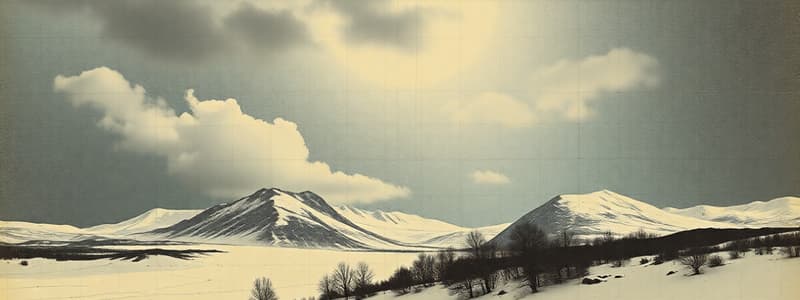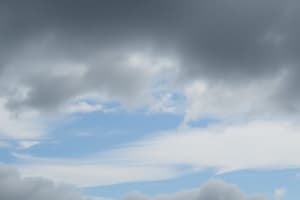Podcast
Questions and Answers
What distinguishes climate from weather?
What distinguishes climate from weather?
- Climate reflects average atmospheric conditions over a long period, typically 30 years or more. (correct)
- Climate refers to atmospheric conditions over a short period.
- Weather involves average conditions, while climate involves specific conditions.
- Weather reflects average atmospheric conditions over a long period.
How does albedo impact temperature?
How does albedo impact temperature?
- High albedo surfaces reflect more solar radiation, resulting in lower temperatures. (correct)
- Higher albedo surfaces absorb more solar radiation and increase temperature.
- Albedo has no significant effect on atmospheric temperature changes.
- Lower albedo surfaces reflect more solar radiation, leading to warmer temperatures.
Which of the following statements is true regarding weather?
Which of the following statements is true regarding weather?
- Weather describes atmospheric conditions at a specific location over a short timeframe. (correct)
- Weather measurement requires consideration of albedo for accurate predictions.
- Weather is primarily concerned with the long-term trends in atmospheric temperature.
- Weather is the average atmospheric conditions over a preceding decade.
Which factor primarily determines the reflectivity of a surface?
Which factor primarily determines the reflectivity of a surface?
What can be inferred about areas with low albedo?
What can be inferred about areas with low albedo?
Flashcards are hidden until you start studying
Study Notes
Weather and Climate
- Weather refers to the atmospheric conditions at a specific location over a short period.
- Climate describes the average atmospheric conditions at a specific location over a long period, typically 30 years or more.
Albedo
- Albedo is the reflectivity of a surface.
- Surfaces with high albedo, such as snow, reflect more solar radiation and have lower temperatures.
- Surfaces with low albedo, such as oceans, reflect less solar radiation, absorb more, and have higher temperatures.
Studying That Suits You
Use AI to generate personalized quizzes and flashcards to suit your learning preferences.




